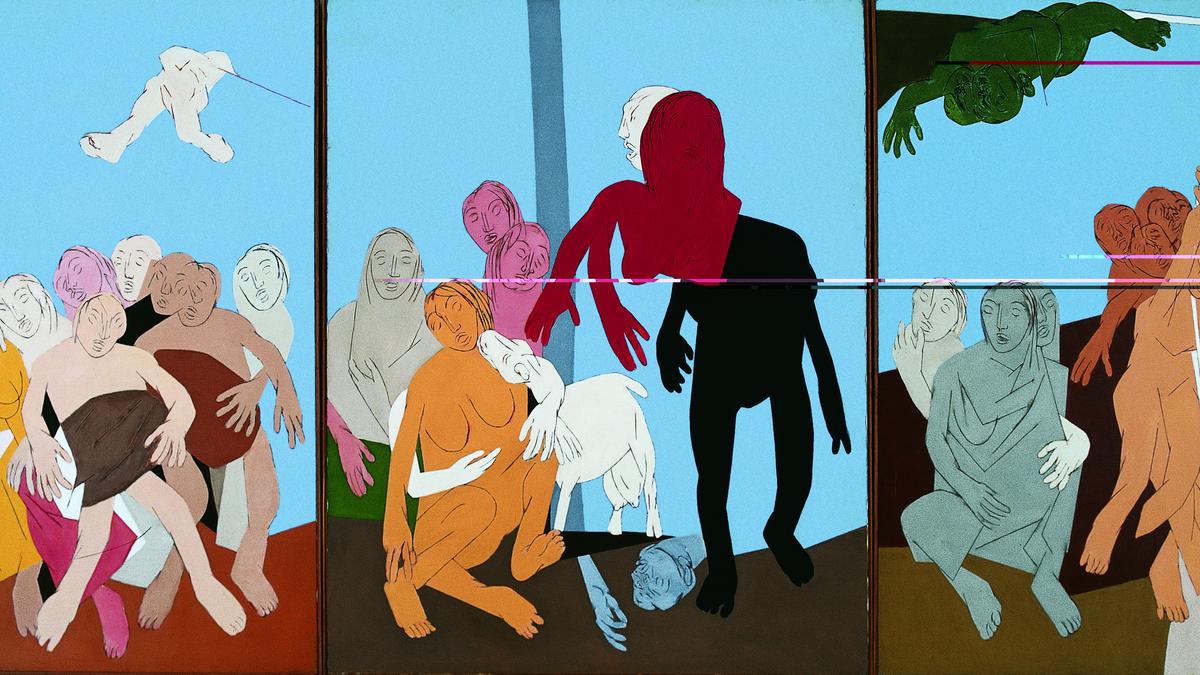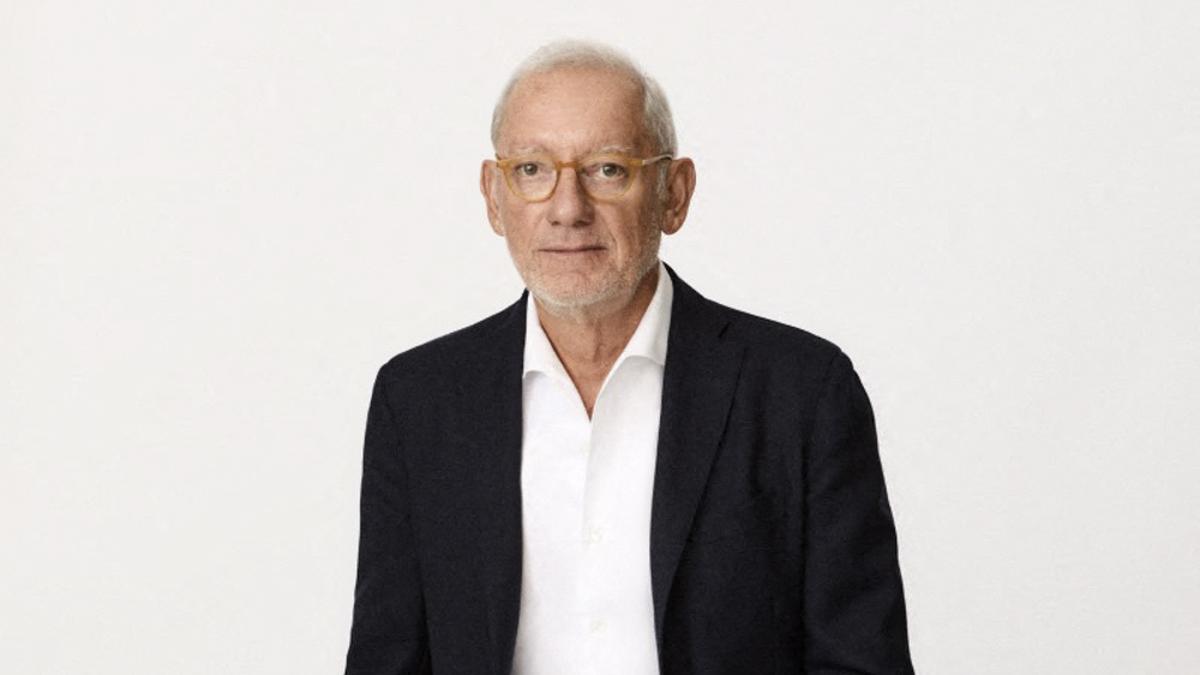Artisans at work in Lakshmi Puram in Madurai, a hub for stainless steel ware.
| Photo Credit: MOORTHY G
The clang of stainless-steel utensils fills the air as Madurai’s Lakshmi Puram wakes up to yet another day. It is 10am and the wholesale and retail steel shops that stand on either side of the narrow road, open their shutters one by one. Workers go about dusting their wares while the owners light incense sticks and settle down at the counters. Away from the bustle, R Mayilvahanan is seated in front of a shop on the road, a small iron hammer and finger-sized chisel in hand. Head bent in concentration, he engraves the name Sri Muthu Priya on the base of a copper lamp with the chisel, as the hammer goes, ‘tick, tick, tick’.
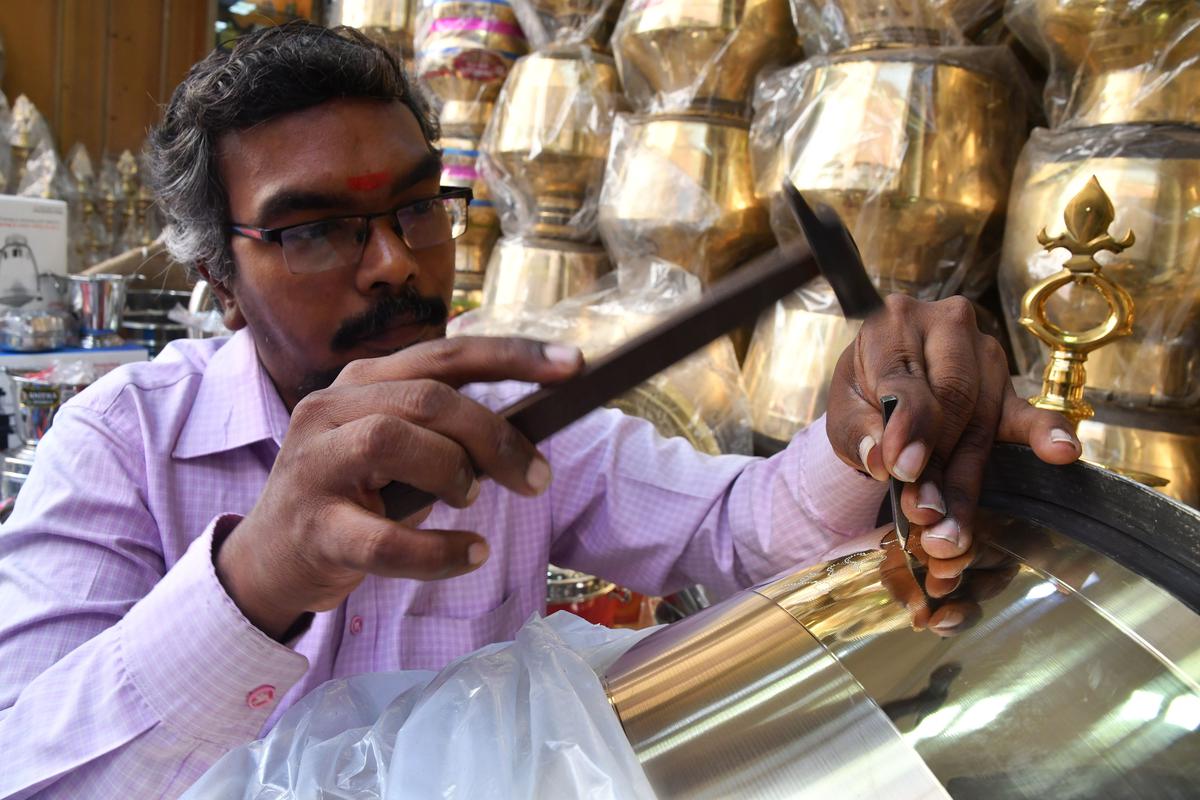
K Arivazhagan, who works in front of Anitha Stores, can engrave motifs such as peacocks and flowers
| Photo Credit:
MOORTHY G
“This is a present to my daughter for Karthigai Deepam,” says R Indrani, his customer, as she watches him work. The 62-year-old just purchased the lamp and was looking for an artisan to engrave a name on it by hand, when she spotted Mayilvahanan. “The steel shop can do this for free with a machine, but what they write is a mere scribble that will fade after being scrubbed a few times,” she says. “There is something special in getting it done by hand. This way, the name will last a lifetime.”
Mayilvahanan is done in under five minutes, and charges ₹30. The 54-year-old is among a handful of such artisans in Lakshmi Puram, a hub for stainless-steel ware. “There was a time when every retail store had an artisan seated in front of it,” says T Saravanan, who owns Amutha Steel Mart. “There are close to 400 shops in the locality, including those on the eight cross-streets of Lakshmi Puram.”
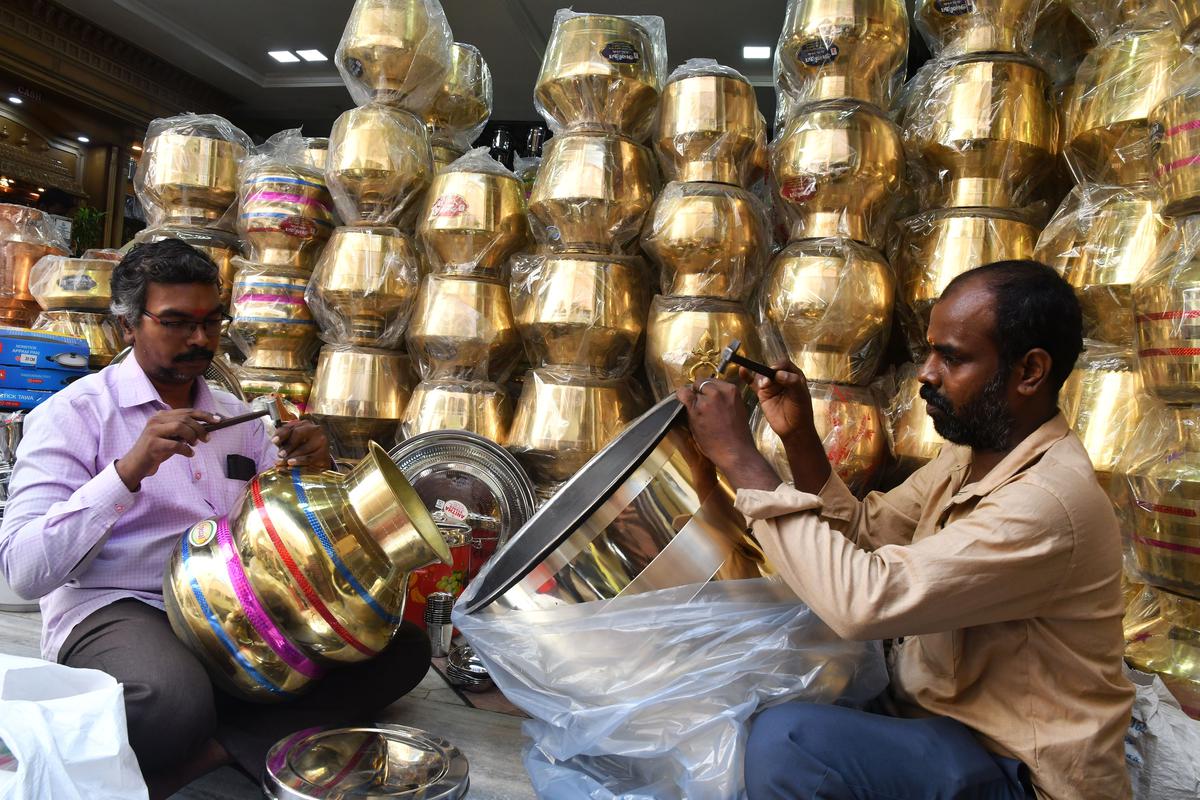
K Arivazhagan and his colleague P Mohan at Lakshmi Puram in Madurai
| Photo Credit:
MOORTHY G
Shoppers, many of whom come to buy in bulk for couples setting up home, stop by to get the initials of the bride engraved on each utensil. “These will outlive the user,” Saravanan points out. He adds how a decade ago, it was common to see men at work on the roadside, surrounded by pots and pans as women waited nearby, peering over their shoulders and giving instructions.
Gradually, laser printers entered the fray, with several units springing up in the by-lanes of Lakshmi Puram. “They can get the work done faster,” points out Saravanan. Shopkeepers also started investing in electrical engraving tools that cost around ₹700. “From around 200, the number of artisans who can hand-engrave letters has gone down to 20 today,” says T Prabhu Chandran, who owns Anandi Metals.
Some of them continue to hold on to the craft. K Arivazhagan, who works in front of Anitha Stores, learned hand-engraving from his grandfather T Muthuchamy. “He trained me to practise on coconut husks at home,” says the 40-year-old who has been on the job for 28 years. “There are some people who still prefer the traditional method,” he says, adding: “We continue to survive because of them; they come looking for us.” Arivazhagan’s engraving is impeccable; the Tamil letters appear sharp and well-rounded. “I made lots of mistakes when I started out,” he shares with a chuckle. “I covered up by turning the wrong curves into flowers and leaves.”
Arivazhagan can also engrave motifs such as flowers, fish, and peacocks, for which he charges ₹50; most artisans charge ₹2 for a letter. “It is not much, but it gives me the satisfaction of adding artistic value to an ordinary steel utensil,” says his colleague P Mohan who works alongside him. “People bring plates that my grandfather engraved to show me, recalling how their mother or grandmother got it done,” adds Arivazhagan.
These men also visit homes to work on large orders, and also travel to weddings and temple festivals in surrounding cities, and sometimes as far as Coimbatore and Pollachi on work. “This is because this craft is unique to Madurai,” says Mohan.
Why do people get names engraved on utensils? “It’s a nice reminder, isn’t it?” Mohan asks. “Every time a daughter uses a vessel, she can think fondly of how her mother visited a small lane in Madurai to get her name written on it, years ago.” Arivazhagan, meanwhile, is starting to engrave the names Paari and Meenakshi on two brand-new plates. “You should see my handwriting,” he laughs. “I cannot write a legible word on paper.”


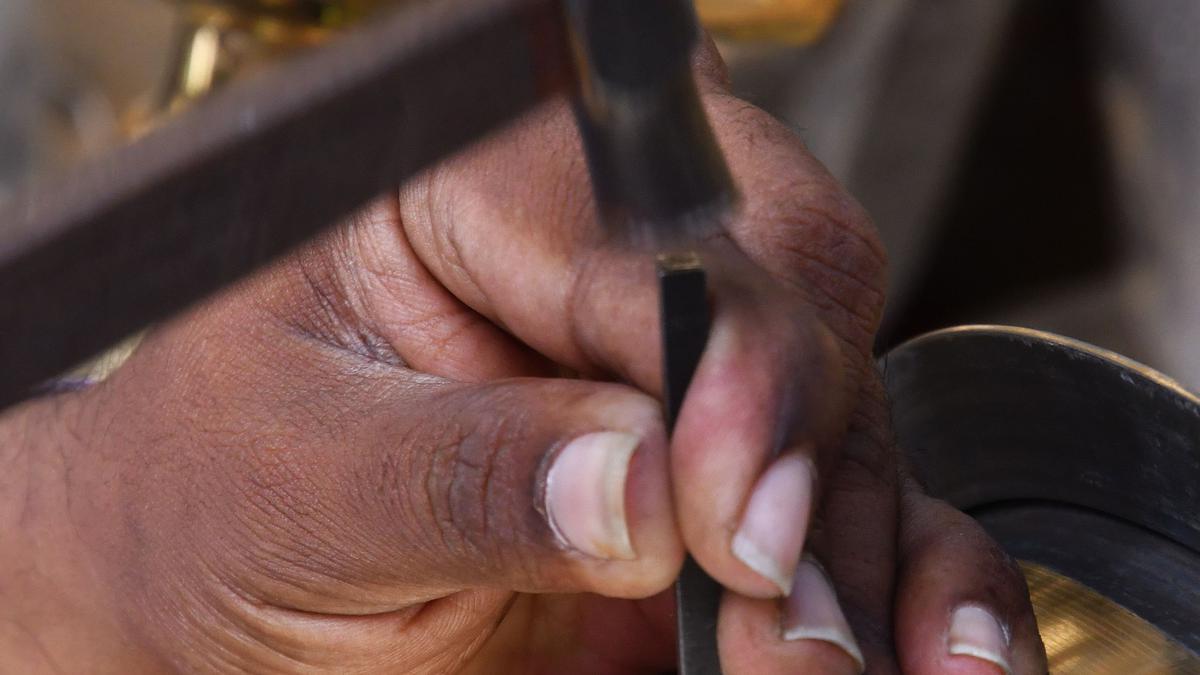

%20_%20Belong%20II%20(335x213%20cm).jpg)
